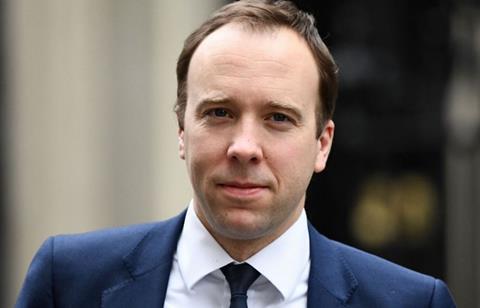
Image credit: Bart Lenoir/ Shutterstock.comHealth secretary Matt Hancock was lobbied by former Prime Minister David Cameron and financier Lex Greensill to introduce a payroll scheme that was later offered within the NHS, it emerged over the weekend.
There are fears that procurement and open competition rules were flouted as NHS staff became entitled to use a remuneration scheme to gain payments before their payday. Additionally, sources have told The Sunday Times that Greensill’s plan was to convert the NHS future payments into bonds and sell them internationally.
Cameron held share options worth millions of pounds in Greensill Capital, a financial services company he advised, which has subsequently gone bust, threatening 55,000 jobs across the world, including 5,000 in the UK.
According to The Sunday Times, in October 2019 Cameron arranged a 'private drink' with Hancock and Greensill. The Australian banker’s firm wanted to introduce a scheme to remunerate doctors and nurses before their usual paydays.
Meetings were arranged between Greensill, NHS chief executive Simon Stevens and Dido Harding, then head of NHS Improvement.
Allies of Hancock, said the newspaper, encouraged Greensill to work directly with NHS trusts on the basis that other suppliers were free to offer the service.
But crucially, months after the meeting last April, NHS Shared Business Services (NHS SBS), a joint vehicle owned by the Department of Health and a French IT firm, announced a pilot with Earnd, a payments start-up then owned by Greensill. It later said the scheme was being introduced to 'all' NHS organisations.
This meant that 400,000 employees who used NHS SBS for their payroll services became entitled to use Earnd and download it onto their payroll app.
Private firms cannot automatically house their services on such platforms and are typically required to bid to get potentially lucrative access to the health service’s vast workforce. In this instance there was no procurement process or open competition.
Earnd offered the scheme free to workers, who could opt to receive their wages on a daily or weekly basis. The organisation providing the immediate payment in such instances was Earnd, which would later recoup staff salaries from the NHS.
The Times said Greensill framed the scheme as benevolent, explaining the aim was to help alleviate NHS workers’ stress during the pandemic. But two senior former employees say the plan was to convert the NHS’s future payments into bonds and sell them internationally. They also used the credibility of working with the NHS via the service, and a separate pharmacy scheme agreed by Cameron during his time in office, to demonstrate their credibility with investors.
Some of the country’s biggest trusts, such as the Royal Free in London, signed up, but last month Earnd filed for administration.
According to The Times: “The [organisation's] collapse poses questions about the circumstances in which NHS SBS entered into the partnership. The entity is not a public body and there was no transparency surrounding the agreement.”
An NHS spokesperson said: “The NHS has a duty to support staff while using taxpayers’ money wisely, so officials do meet organisations that may be able to provide good-value services which are effective, and when ideas are taken forward, contracts are put through the appropriate and transparent tendering processes. The proposals were not taken forward in this case.”
The Department of Health said: “The wellbeing of NHS staff is the top priority of the department and the health secretary. Our approach was and is that local NHS employers are best placed to decide how different pay flexibilities fit with their overall pay-and-reward offer for their staff.”
Meanwhile, UK fintech firm Wagestream, which offers workers real-time access to wages, has scooped up Earnd Australia, a Sydney-based competitor that Greensill acquired just last year.
















